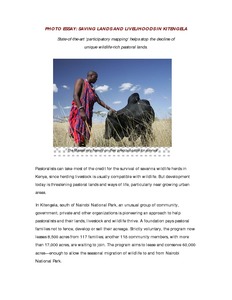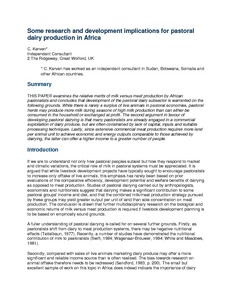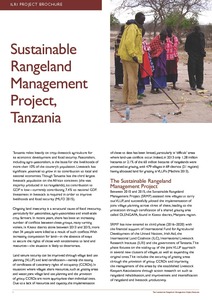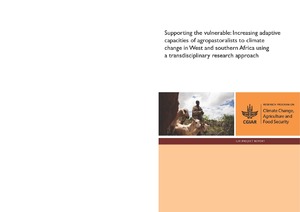Socioeconomic factors affecting livestock water productivity in rainfed pastoral production systems
Some aspects and implications of the development of grazing blocks in northern province, Kenya
Organizational and management problems associated w. development of grazing blocks in north eastern kenya w. spec. ref. to the Somali pastoralists and their socioeconomic organization.
Some research and development implications for pastoral dairy production in Africa
Examines the relative merits of milk versus meat production by African pastoralists. Discusses the implications for livestock development policy.
Sustainable livestock insurance for pastoralists
Sustainable livestock insurance for pastoralists: From research to practice and impact
Sustainable Rangeland Management Project, Tanzania
Sustaining communities, livestock and wildlife in the Maasai Steppe: vital facts, observations and policy actions
Supporting the vulnerable: Increasing adaptive capacities of agropastoralists to climate change in West and southern Africa using a transdisciplinary research approach
The world’s climate is changing rapidly and Africa will be severely affected by this, not only because of the effects on ecosystems but also because of the low adaptive capacity of communities due to poverty and lack of infrastructure, services, and appropriate policies to support adaptation strategies. A large share of Africa’s poor are dependent on livestock for some part of their livelihoods, most of these living in smallholder, rainfed mixed systems and pastoral systems, where livestock play a key role as assets providing multiple economic, social, and risk management functions.









